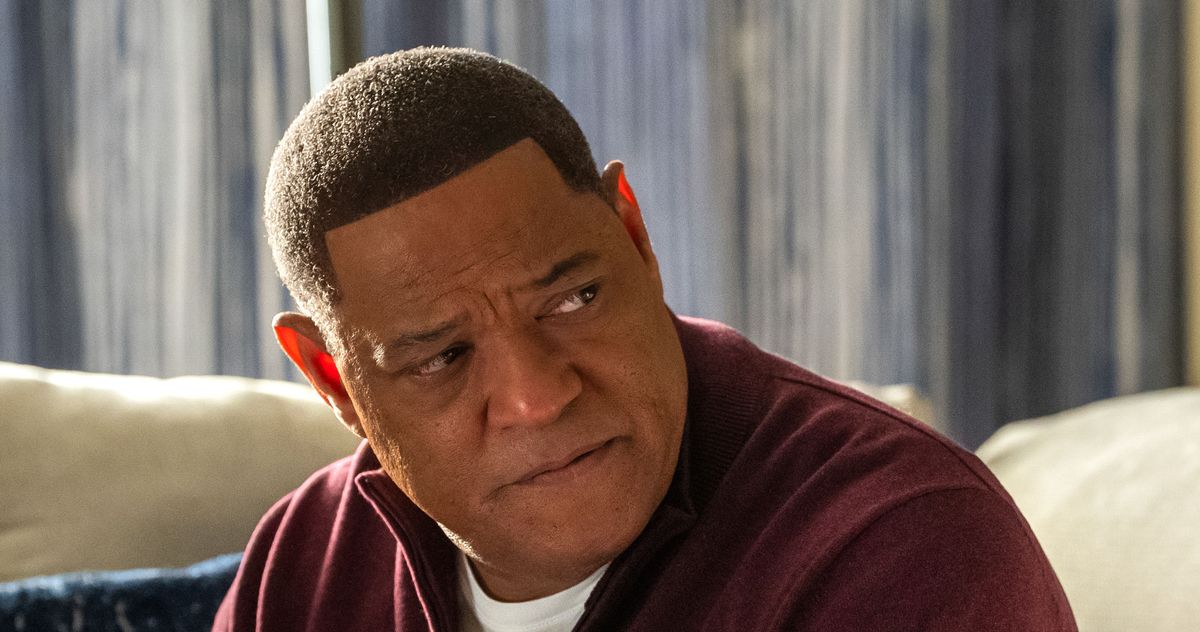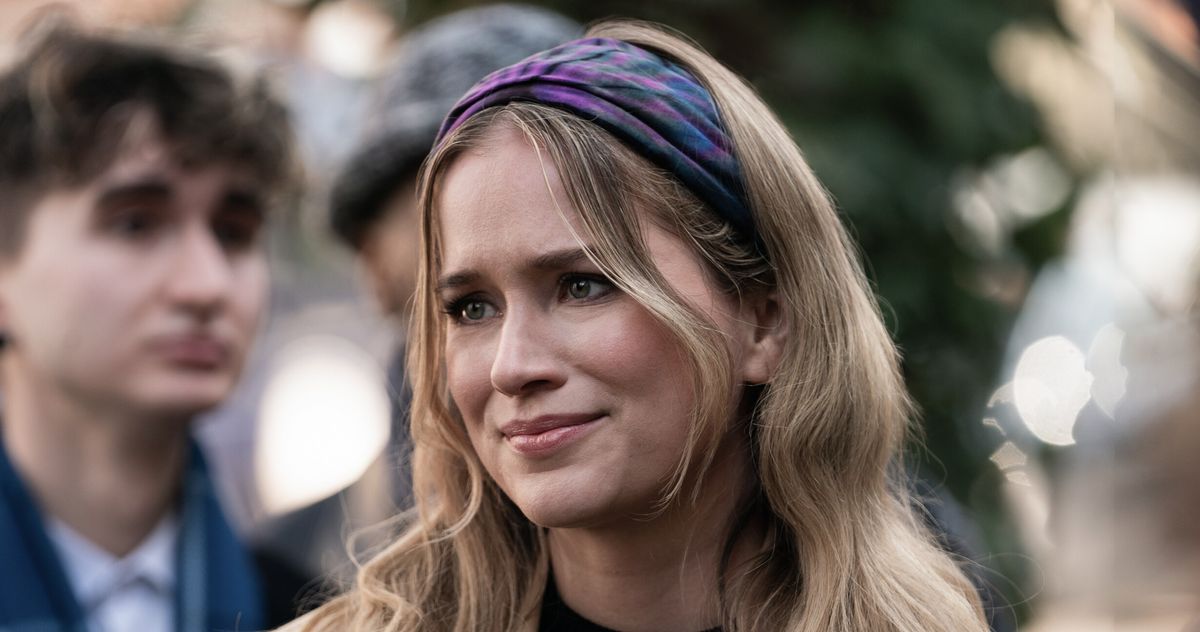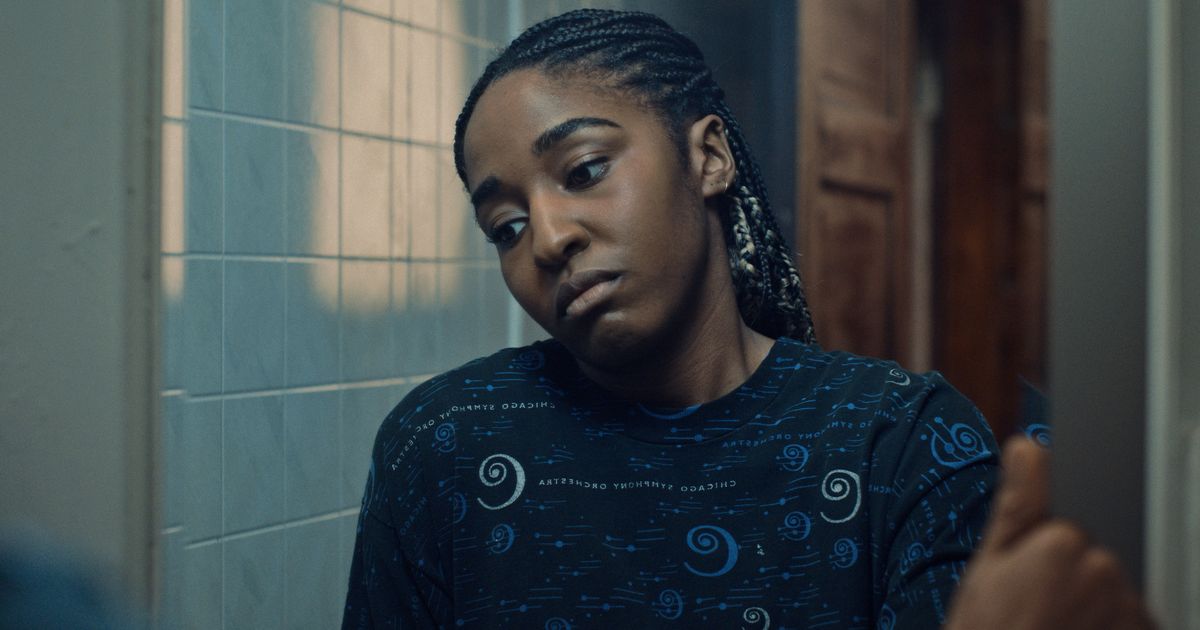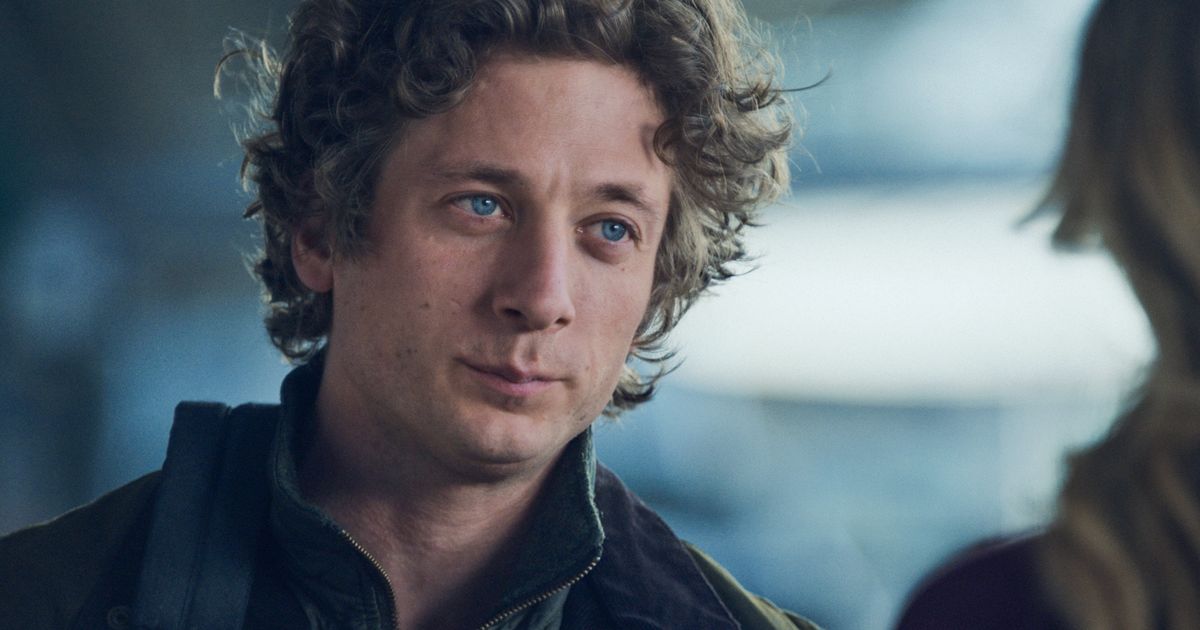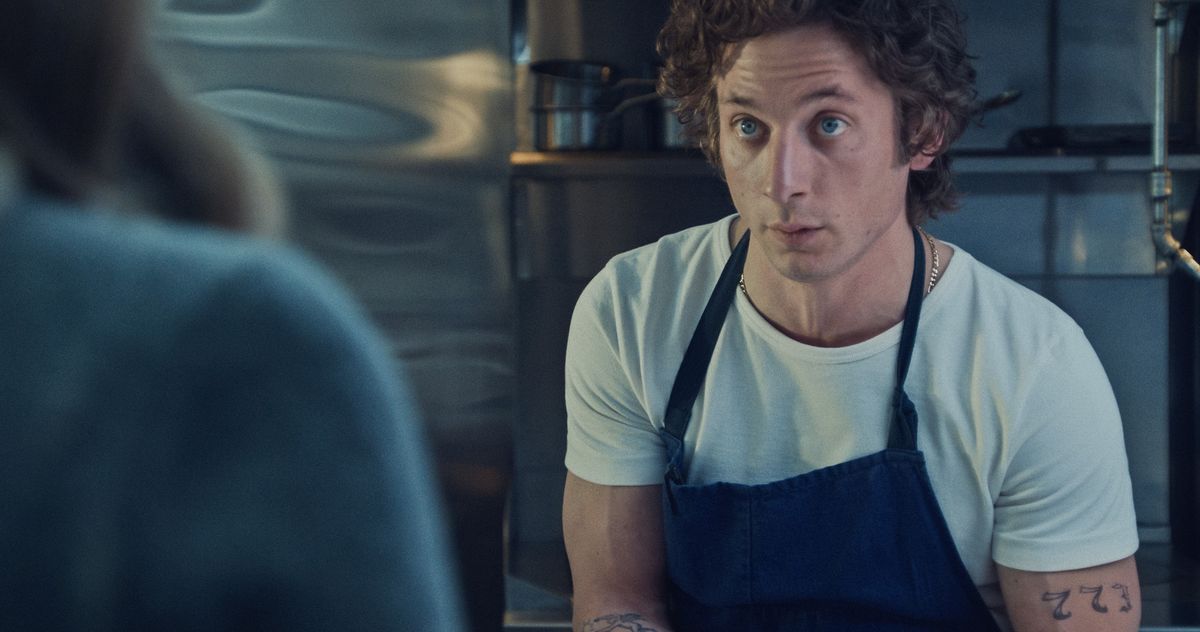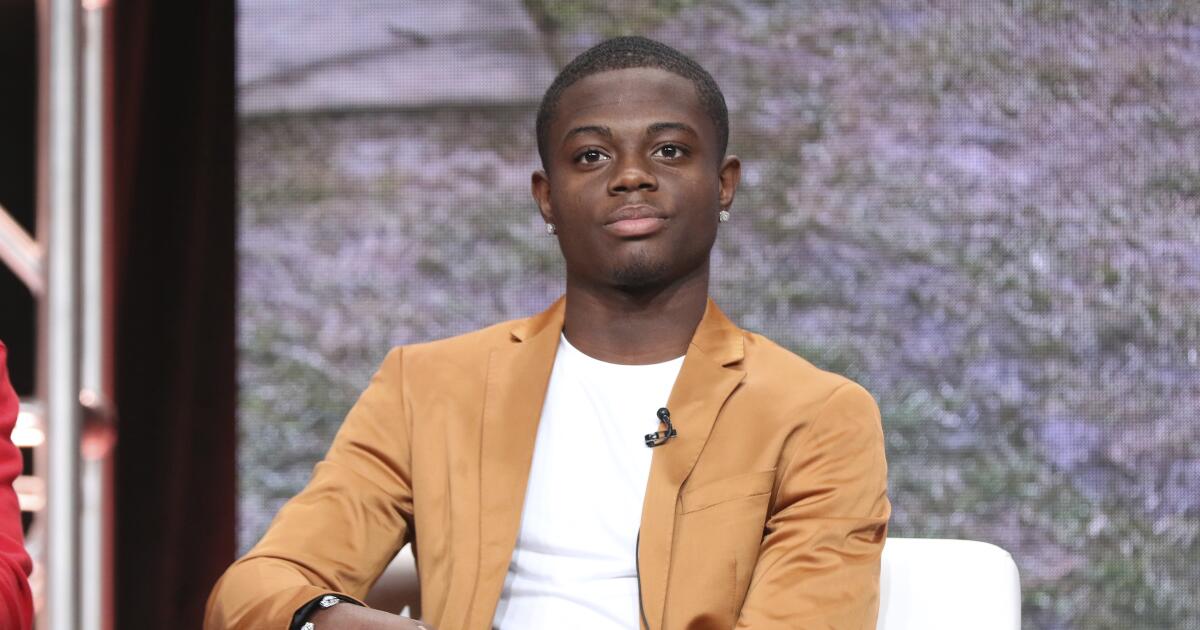Photo: Kelsey McNeal/FX
What do we need to know about the characters in Clipped that we don’t already know? What experiences are relevant to understanding how Doc Rivers, Shelly Sterling, and V. Stiviano behave in this moment when Donald Sterling’s ignominious run as the owner of the Los Angeles Clippers came to an end? That’s the risk of inserting backstory into a narrative: It clogs up momentum and explains away motives that could be (or already are) present without them. We had a good enough sense, for example, of the difficult decisions Doc and the team had to make about continuing their playoff run in the wake of the TMZ tape. We could also read plenty into V.’s seedy path to Hollywood fame without needing to know that she didn’t make the cut for the reality show Flavor of Love. The show has done a perfectly fine job clarifying its main characters’ actions and relevant histories without leaving us to wonder what they might be thinking.
Yet the full commitment “Winning Ugly” has to these backstories makes the episode work, even though you could theoretically skip it entirely and not feel like you’d missed anything. Starting with Doc on the plane ride back to Los Angeles after the Clippers’ game four loss to the Golden State Warriors — too short a flight for sleep-induced flashbacks, really — Clipped unfolds in the brief dream space before he wakes up and reality asserts itself again. The vignettes each have a formula: A videotape rewind through relevant events in pop culture history for each of the characters before settling on a time that proved most pivotal or illuminating for the show’s purposes. A cynic would say this is how you turn a five-episode podcast series into a six-episode television series.
The video-rewind for Doc zips back through Barack Obama’s inauguration, Will Smith’s interview with Barbara Walters (who at one point asked him, “Do you think I’m ‘getting jiggy wit it’?”), Tiger Woods winning his first Masters (and fellow tour pro Fuzzy Zoeller making a racist quip about it), Michael Jordan refusing to endorse a Black challenger to Jesse Helms’ senate seat in North Carolina (“Republicans buy sneakers, too”), and the riots that broke out in the wake of the Rodney King verdict. That the King verdict happened to coincide with Doc’s only year as a player under Donald Sterling is an astonishing intersection of events that the episode’s writer, Tearrance Arvelle Chisholm, seizes on effectively, if not with the lightest touch. When Doc walks into a Brentwood deli as riots are breaking out across town, a decal on the fridge reads “Stay In the Game,” which is ad-world equivalent to “Shut Up and Dribble.”
There’s a Get Out-like tone to the interactions Doc has with his overwhelmingly white neighbors and even his wife Kristen, whose presence isn’t a comfort to him on this day. He’s used to traveling comfortably in affluent white circles, but the earnestness with which he’s being treated is an awkward annoyance as if giving him a better place in line or hauling over a bag of fresh oranges is going to make a difference. (It’s like the classic 9/11 Onion issue headline, “Not Knowing What Else To Do, Woman Bakes American-Flag Cake.”) When Kristen questions Doc about Black people “destroying their own neighborhoods” during the riots, he’s furious that she doesn’t understand their anger or his. And, most of all, he’s mad at himself for retreating to the white haven of Brentwood, which feels like he’s selling out, just as he might be for playing basketball for an obvious racist like Donald Sterling. His dad (Lawrence Gilliard, Jr., of The Wire fame) calls him “successful” for making white people comfortable, thus allowing him to lead a cozier life. But that’s not exactly reassuring to him.
V.’s Wayback Machine cycles through various lowlights in celebrity and reality-TV history, touching on a Charlie Sheen apology tour, Paris Hilton at the height of her fame, and Omarosa’s relationship with Donald Trump as the breakout star of The Apprentice. But let’s not bury the lede here: V.’s segment, set in 2004, includes a turn by the great Fred Melamed, whose unparalleled gravitas was deployed to most memorable effect as Sy Ableman in the Coen brothers comedy A Serious Man. Here Melamed is the host presiding over the Hollywood orgy to which V.’s new friend Deja has invited her, promising the opportunity to meet producers that can take her to destinations far more glamorous than the food truck she operates on the margins. Deja makes good on her promise, but V. isn’t aware that she’s entering an Eyes Wide Shut situation, and she retreats from the action in horror.
In her one big scene with Melamed’s character, V. proves a quick study in the transactional nature of Hollywood’s shadier circles, where talent matters less than sexual bartering. The beauty of Melamed’s performance is that his lasciviousness is masked as effectively as his face, and he’s able to put her in a situation where allowing him to be her “sugar daddy” seems like her idea. His moping about his life in a beautiful kitchen he never uses suggests that she can play a role in making him realize how amazing he life actually is. When he gets around to quietly requesting a foot rub from her, it’s like he’s hitting her in stride.
The Shelly Sterling flashback is perhaps the least successful of the four because the peculiar dynamics of the Sterling marriage don’t really need an origin story. In 2006, Shelly has more cause to break off with her husband due to a lawsuit around his discriminatory housing practices in Koreatown and an affair with a woman named Alexandra that sounds a lot like the V. situation, including the purchases of major gifts like a house and talk about his mistress as the love of his life. Her friend Justine, newly divorced from her own cheating husband, encourages Shelly to drop her terrible man, too, but she can’t bring herself to do it, despite plays on her conscience, like testimony from the daughter of an elderly Black tenant whose death allegedly relates to the inhumane conditions of a Sterling-managed apartment. The one uncomfortable truth that Clipped seems to miss about the pitiable Shelly — one that parallels the perception of Melania Trump, another wife of a real-estate cheater — is how much she might align with his point of view on things. They built the Sterling empire together, after all.
The final flashback subject is a nice surprise, Elgin Baylor, who isn’t a major player on the show but is as important a piece of Clipper history as anyone under the Sterling regime. The show cuts back to a Christmas party in 2008, when Andy Roeser offering Baylor, the beleaguered long-time GM, a demotion to stay in the front office with reduced power. Given that his power as a GM was already reduced considerably, with Sterling rejecting trades and tightening the purse strings, Baylor finally decides he cannot accept any further indignity and quits. He fully realizes that his toothless, humiliating run as “the worst GM in basketball” served Sterling’s need to cover his own racist practices and vows to use this chance to expose the world to it.
But as the show shrewdly notes, 2008 was a time when commissioner David Stern wasn’t exactly keen on dispelling the plantation mentality of the all-white group of owners in the league. In the wake of the Malice at the Palace in 2004, where white fans provoked Black players, Stern had introduced a formal dress policy to introduce “professionalism” in the league, which had poor racial implications at the time and looks even poorer in retrospect. As Baylor notes, Stern turned a blind eye to Sterling’s grotesquely racist behavior while “making sure our players weren’t wearing baggy pants.” Stern’s policies (and Stern himself) wouldn’t survive the player empowerment movement that followed in the next decade, but Baylor wouldn’t benefit from it. The show gives him the deference he deserves.
• “White ladies bringing in oranges.” Doc’s father has an appreciation for what his son’s success entails.
• The video rewind for Shelly is a little strange with a Brandi Glanville appearance on Ricki Lake, scenes from the Occupy Wall Street protest, and a Trump ribbon-cutting ceremony. Sounds like the making of a “We Didn’t Start the Fire” verse.
• Nice to see the show picking the low-hanging fruit of Sterling getting asked about his handwriting.
• The NBA, even under Adam Silver, will go to great lengths to protect its owners, many of whom are scum of the first order. If given a chance to vote as a group over Sterling’s lifetime ban, it doesn’t seem likely the owners would have done it. They had plenty of chances before.
• Kelly AuCoin is such a delight as Andy, who’s so spineless through this entire crisis that it’s a wonder he can stand upright. Perhaps needless to say, Andy Roeser did not stay on with the team after it was sold to Steve Ballmer in 2014.




